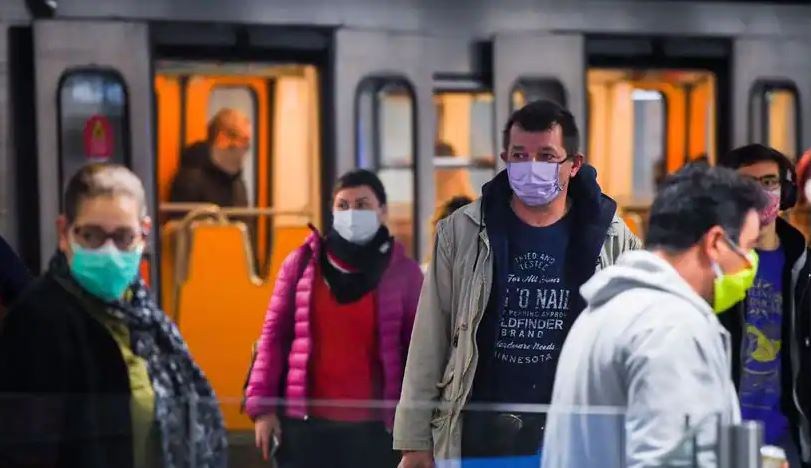Even though the number of hospitalisations in Belgium dropped again for the first time in weeks, virologist Steven Van Gucht stated that "the big test" is still coming when life slowly returns to normal in September.
On Thursday, for the first time in several weeks, the number of daily hospital admissions decreased and the R-value dropped below 1, meaning the epidemic is losing momentum, causing Van Gucht to be "cautiously optimistic" about the future.
"On the one hand, it is encouraging that there now seems to be a slowdown after several weeks of continuous increase in infections, hospital admissions and patients in intensive care," he told De Morgen.
"That increase was never spectacular or explosive, but it was always consistent. And now it seems to be slowing down. Although I do not dare use the word 'stabilising' yet. It is too early for that," Van Gucht added. "The big test is still to come."
A lot of changes will happen simultaneously in September, as many travellers will be returning from last-minute holidays, schools will reopen, adults will go to work again, and a number of coronavirus restrictions will be lifted.
"These are all things that can cause the figures to rise again. So we will have to wait and see, although I am cautiously positive," Van Gucht said.
Many computer models, calculated earlier this year, showed that there would be a serious increase in infections by the end of August, but that is currently not the case, he stressed.
Related News
- Teleworking recommendation lifted, but face mask obligation remains
- Brussels extends stricter rules for hospitality sector until 30 September
- Belgium to lift closing times for bars and restaurants
However, without the country's high vaccination coverage, the figures would undoubtedly have "increased in a way that would not have been sustainable," Van Gucht said.
"The reason we can 'digest' the current situation is simply because many people have already been vaccinated. And so, far fewer people need to be admitted to hospital," he said.
According to Van Gucht, this is really clear in the latest data, which show that the ratio between the number of infections and hospital admissions is much bigger than it used to be.
"On the other hand, vaccination does not always prevent infection, just as it does not prevent the virus from circulating, but it does slow it down," he said.
The month of September, in particular, will be crucial, especially now that face masks in primary schools are no longer obligated, and secondary schools only require them outside the classroom.
According to Van Gucht, it is difficult to say what will happen, as there are "advantages and disadvantages to these relaxed rules."
The biggest advantage is that better communication and facial expressions will be possible again, both between pupils and with the teachers, he explained.
"But with a few precautions, the disadvantages may not be so bad," Van Gucht said, referring to measures like a fixed place for each pupil, sufficient space between the benches and - perhaps most important - good ventilation.
"Sharing the same classroom with one or two infected children for an entire day - while it is not properly ventilated and the CO2 concentration increases - can, of course, spread the virus," he said. "Also because a lot of children have not yet been infected. That remains a playground for the coronavirus."
For that reason, there is no reason to be alarmed by the fact that many infections can still appear in school-going children, and that classrooms will have to be closed regularly. "Hopefully as little as possible, but that is to be expected as long as most children have no immunity."
By contrast, Van Gucht is not expecting any issues for the return to the work floor from 1 September.
"A lot of working adults are now fully vaccinated, of course. So, certainly with some additional precautions - such as distance rules and good ventilation - I see little danger of a return to the physical work floor," he said.
At the same time, however, Van Gucht also advocates a gradual instead of an immediate return to the work floor, and is also in favour of not giving up teleworking completely.
"If only to ensure that it is less crowded on public transport or in the work cafeteria - that can only help," he added.

